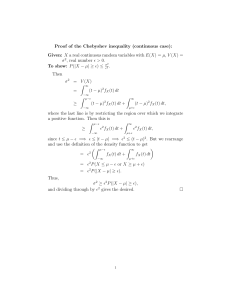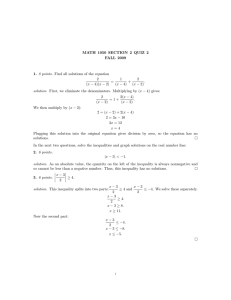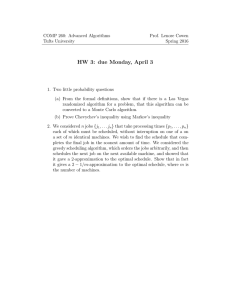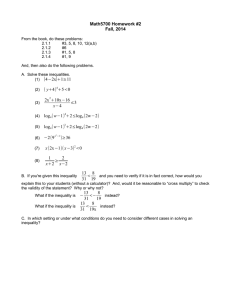Document 15929896
advertisement
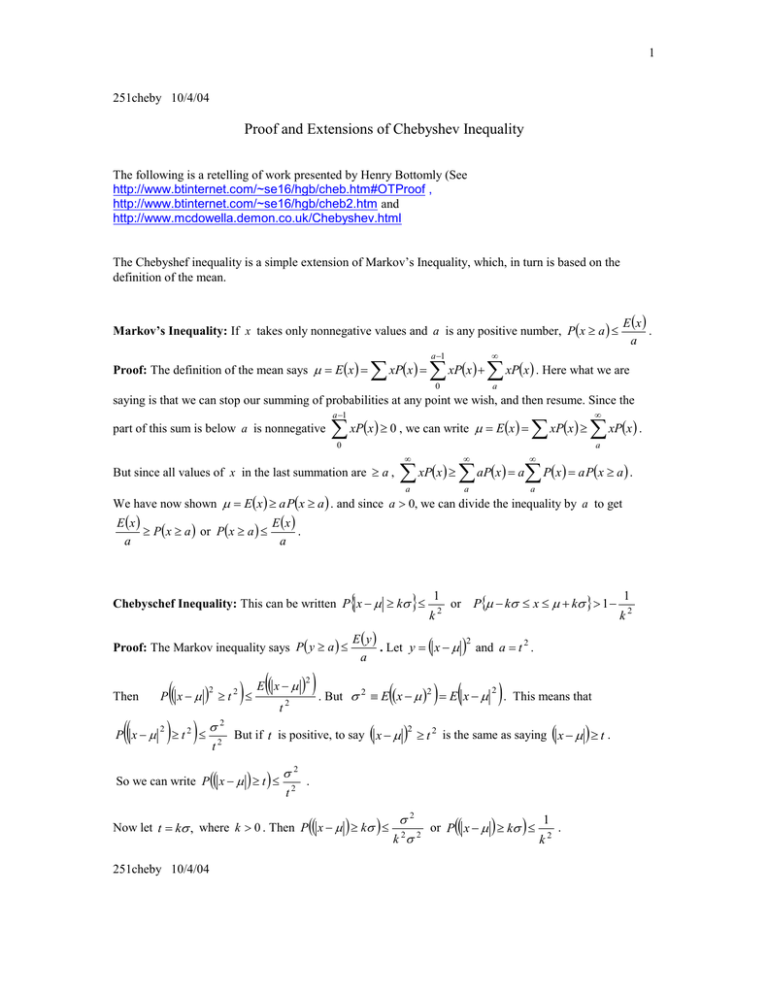
1 251cheby 10/4/04 Proof and Extensions of Chebyshev Inequality The following is a retelling of work presented by Henry Bottomly (See http://www.btinternet.com/~se16/hgb/cheb.htm#OTProof , http://www.btinternet.com/~se16/hgb/cheb2.htm and http://www.mcdowella.demon.co.uk/Chebyshev.html The Chebyshef inequality is a simple extension of Markov’s Inequality, which, in turn is based on the definition of the mean. E x . a Markov’s Inequality: If x takes only nonnegative values and a is any positive number, Px a Proof: The definition of the mean says E x xPx a 1 xPx 0 xPx . Here what we are a saying is that we can stop our summing of probabilities at any point we wish, and then resume. Since the a 1 part of this sum is below a is nonnegative xPx 0 , we can write E x xPx 0 xPx . a But since all values of x in the last summation are a , a a a xPx aPx a Px a Px a . We have now shown Ex a Px a . and since a 0, we can divide the inequality by a to get E x E x Px a or Px a . a a 1 Chebyschef Inequality: This can be written P x k Proof: The Markov inequality says P y a Then P x or P k x k 1 Ey . Let y x a 2 and a t 2 . E xt . But Ex E x . This means that t t But if t is positive, to say x t is the same as saying x t . P x t2 2 2 2 k 2 2 2 2 2 2 So we can write P x t 2 t2 . Now let t k , where k 0 . Then P x k 251cheby 10/4/04 2 2 2 2 2 1 or P x k 2 . 2 2 k k 1 k2 2 The one-tailed version of this is Px k Px k 1 1 calculus. t2 2 2 2 t2 1 1 k 2 , which can also be written . I am still trying to find a proof of this that is simple and does not use
